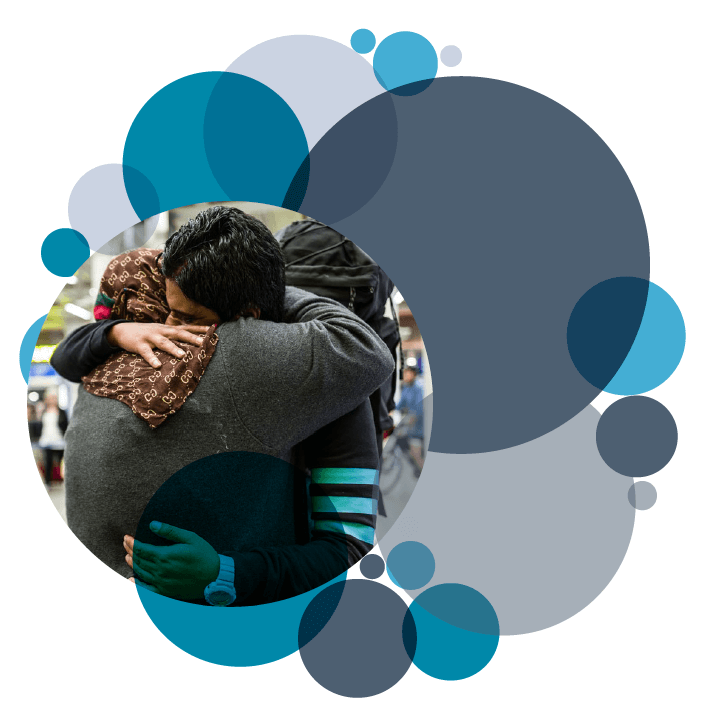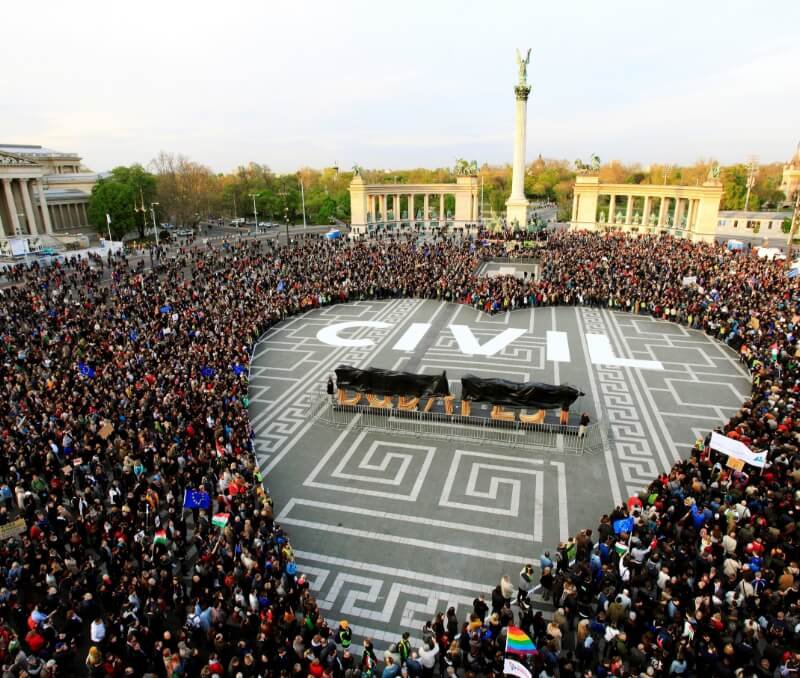Alliance for Gender Equality in Europe
The Alliance for Gender Equality in Europe has released its Annual Report, detailing key outcomes and activities from 2023. Last year, the Alliance distributed 3.5 million euros to 28 small, frontline gender equality organisations in 16 countries promoting economic opportunities mainly for marginalised women, transgender, non-binary, and gender non-conforming people living in Europe. To push the conversation forward on the most impactful ways to support gender equality, two members of our steering committee penned a compelling opinion article, arguing that philanthropy, when harnessed collectively, can become a strategic force in the pursuit of gender equality.
Keep up with the latest updates from the Alliance by following them on their website, newsletter and LinkedIn.
Civitates
It’s been a busy start of the year for Civitates, with the onboarding of two new team members, the finalisation of the new five-year strategy and the publication of the 2023 annual report.
Civitates also published “Investing in Change: Understanding and Enhancing Support for Civic Space in Europe”, which provides an overview of the current funding landscape for civil society organisations working to protect and advance civic space in Europe. The main finding is that the needs far exceed the public and private funds available to civil society to enable a strong and effective response to democratic decline across the EU.
Other findings include the lack of data to track and analyse funding trends and poor coordination among donors in that space.
European Fund For The Balkans
The European Fund for the Balkans recently enriched its structure with a local dimension. As the Steering Committee members were representatives of the three EFB founding and funding foundations who are not from the Western Balkans, three new members from the region were invited to join and contribute with their regional perspective and expertise. The three new members add different expertise from a regional perspective (knowledge, geography, experience, professional background and focus), but share the main values the EFB stands and works for, such as regional solidarity. The Steering Committee of the EFB is enriched with their presence, necessary in these challenging times. The new members are:
Nevena Ružić- not only a former EFB fellowship alumna, but also a well-known expert regarding data protection, Simonida Kacarska- director and co-founder of the European Policy Institute, a think tank in Skopje, North Macedonia and Igor Štiks- scholar, researcher, famous author and engaged citizen of the region.
EPIM
As of April 2024, EPIM becomes the European Philanthropic Initiative for Migration.
The new moniker and visual identity are the final outcome of EPIM’s Process of Change that culminated last year. The name, Pathway to Change, updated Approach and Priorities and a new Governance Model for the fund, were approved at a final Steering Committee meeting in Brussels in October 2023.
The changes embody EPIM’s transformation from a philanthropic re-granter to its new role as a system change funder: an ecosystem curator and field catalyst in the migration space in Europe. They also reinforce the connection between EPIM’s work and greater issues of democracy and belonging.
The logo itself symbolises what this new EPIM stands for: ecosystems, interconnectedness, trust, networks, alliances, and humanity. The rounded shapes and the curves with no starting and end points reflect EPIM’s understanding of change as something complex, interconnected and never linear. The two eyes in the centre convey the message of a shared big picture – an objective that is at the core of EPIM’s purpose. Together, they symbolise the ideas, visions and alliances that will emerge in the ecosystem.
The choice of colour palette signifies EPIM’s move away from an institutional set of colours and away from a view of migration that is predominantly siloed, formal, and politico legal. The new colours embody the diversity and human-centricity of migration and convey a sense of warmth, hope and belonging.
European AI & Society Fund
Last year the world woke up to the AI challenge. In the space of 12 months, public debate shifted from astonishment at ChatGPT’s ability to produce plausible sounding texts on an infinite array of subjects, to a serious and consequential debate on the potential and risks of Artificial Intelligence for our societies. The grantee community of the European AI & Society Fund has been at the forefront of driving positive legislative change. They successfully secured many protections for affected communities and accountability and transparency measures from governments and tech companies deploying AI in the recently adopted European AI Act. They also won court-room rulings in support of improving working conditions for content moderators, and built guidance for algorithmic benefit distribution. Our research on making the AI Act work, shows that civil society crucially needs resources to implement campaigns, litigate and bring evidence on how AI is impacting communities. This year, we’ve embarked on a concerted push to create a strategic shift in the level of funding available for this important work. We need to capitalise on this brief window of possibility of making sure that AI works for people and society, with a concerted push of civil society engagement, or we risk ceding the field to well-funded industry interests. Finally, in 2024 we are pleased to have already welcomed Fondazione Compagnia di San Paolo to the Fund. You can read more about the impact of our community and support of our funding partners in our Annual Report 2023.
If would like to discuss this work, please contact Fund’s Director Catherine Miller.
JAFOWA
Last December, JAFOWA brought together in Paris and remotely, more than 20 people for a two-day workshop. The group was made up of technical partners, resource persons, experts from Africa and Europe, members of its steering committee and advisory board.
The first thematic day shed light on actual and coming issues for sustainable African food systems and the place of family farming and agroecology in these contexts.
The second day was a strategic reflection workshop. Conducted to improve the positioning of the program, it aimed to create a collective agreement on challenges to be prioritized.
The outputs of these 2 two days will be used to fine tune JAFOWA’s theory of change and will orient its 4th call for projects guidelines (open to new farmers organisations), with the launch expected next September.
Articles in the same category

Highlights
NEF Collaborative Day On April 9th 2024, we gathered 35 individuals from our NEF team and...

Edito
Dear readers, As we close the accounts for 2023, we are excited to share some achievements...

Upcoming Events
NEF Board
25 September 2024
Online
